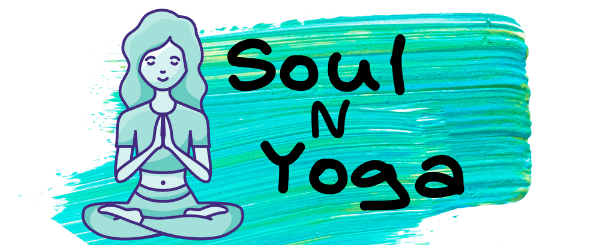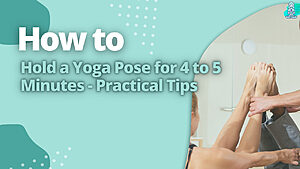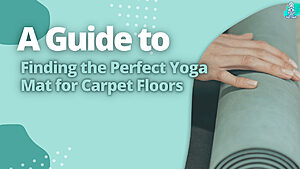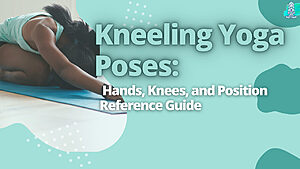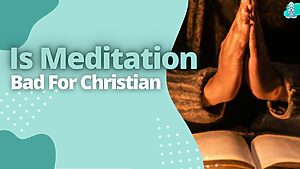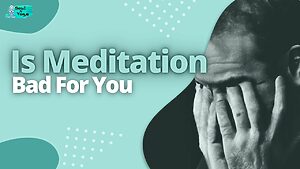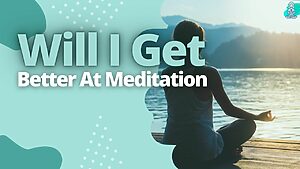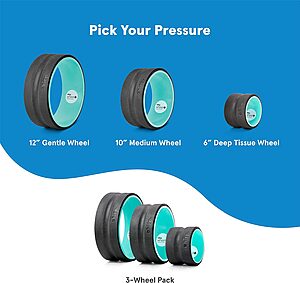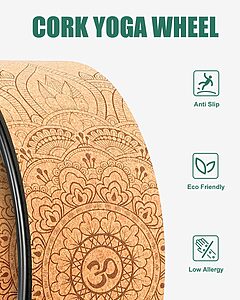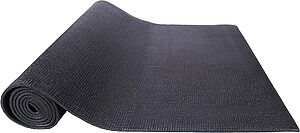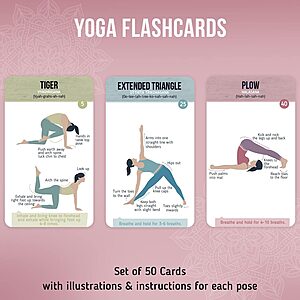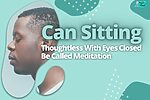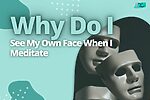Sleep apnea is a serious condition that can harm your health. If you suffer from sleep apnea, you may be wondering if there’s anything you can do to get rid of it.
I’m a certified meditation teacher who has helped people with sleep problems for years. In this blog post, I’ll share what I’ve learned about using meditation to treat sleep apnea.
So if you’re looking for answers to these questions, read on.
Key Takeaways
- Sleep apnea is a condition in which a person experience pauses in breathing or shallow breathing during sleep.
- There are two types of sleep apnea: obstructive sleep apnea (OSA), which is caused by a blockage of the airway, and central sleep apnea (CSA), which is caused by a problem with the brain signals that control breathing.
- Meditation effectively reduces stress and anxiety, which can contribute to sleep apnea.
- Meditation can also help improve sleep quality and quantity, which are important for managing sleep apnea.
- While meditation may not be a cure for sleep apnea, it can be an effective way to manage the condition and improve overall health and well-being.

Here’s The Answer To Can We Get Rid Of Sleep Apnea Through Meditation
Though there is no cure for sleep apnea, there are treatments that can help manage the condition. One such treatment is meditation.
- Meditation is an effective treatment for sleep apnea. In one study, people with sleep apnea who practiced meditation had a better sleep and less daytime fatigue than those who did not practice meditation.
- Meditation can also help improve airflow and reduce inflammation, which can help reduce the severity of sleep apnea symptoms.
- There are many different types of meditation, but the best thing for people with sleep apnea is to find a practice that suits their needs and lifestyle. Some people find it helpful to meditate in a comfortable place for 10-20 minutes before bedtime.
Others find that regular meditation practice throughout the day gives them the best results. If you are interested in trying meditation as a treatment for your sleep apnea, talk to your doctor or a qualified meditation teacher about what might work best for you.
Meditation can have soothing benefits for people with sleep disorders and may improve their quality of life.
Sleep Apnea Is A Condition
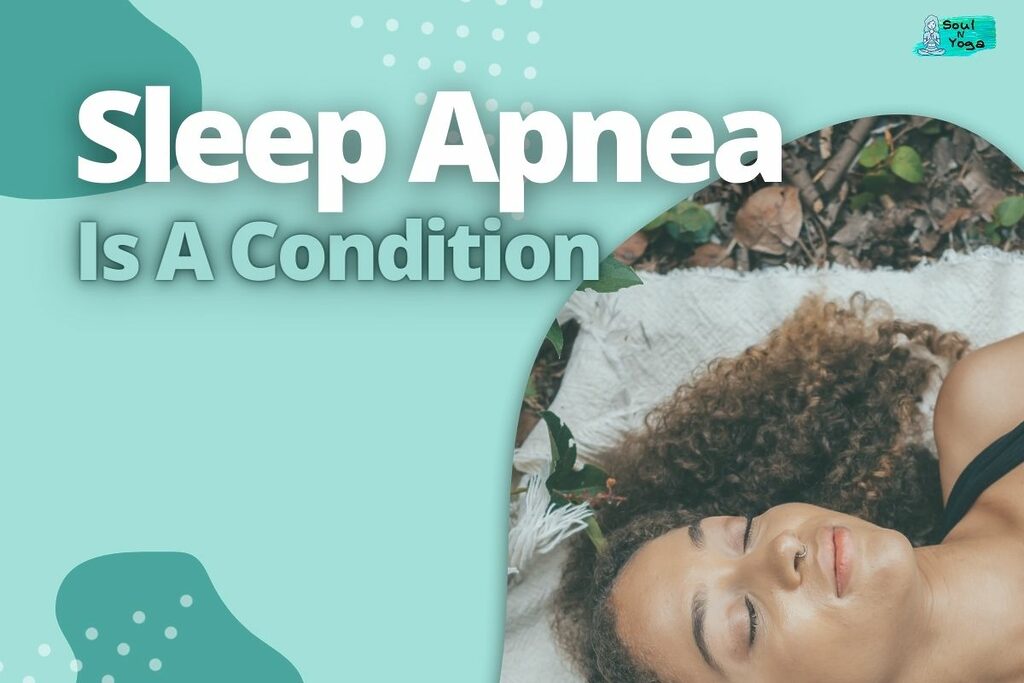
A condition called sleep apnea makes people briefly cease breathing while they are asleep. This can lead to fatigue, drowsiness and other problems during the day.
Sleep apnea can also cause snoring and insomnia, headaches, heart problems and other health issues.
Now that we understand what sleep apnea does to your body let’s dive into what happens when you meditate for sleep.
There Are Three Types Of Sleep Apnea: Obstructive, Central, And Mixed
Obstructive, Central, and Mixed sleep apnea are the three different subtypes.
- Obstructive sleep apnea is the most common type. In obstructive sleep apnea, your airways collapse during sleep, and you cannot breathe normally. You will experience periodic breathing that can last from a few seconds to several minutes each time it happens. You may also snore or feel tired after waking up in the morning.
- Central sleep apnea occurs when the brain doesn’t signal to breathe because of damage caused by high blood pressure or other health conditions such as stroke or heart attack. This kind of condition requires medical attention immediately as it can lead to serious complications such as coma and death if left untreated for too long!
- Mixed Sleep Apnea (MSA) is any combination of these two types; if you have both OSA & CSA, this would be considered mixed.
Meditation Has Been Shown To Be Effective In Reducing Stress And Anxiety
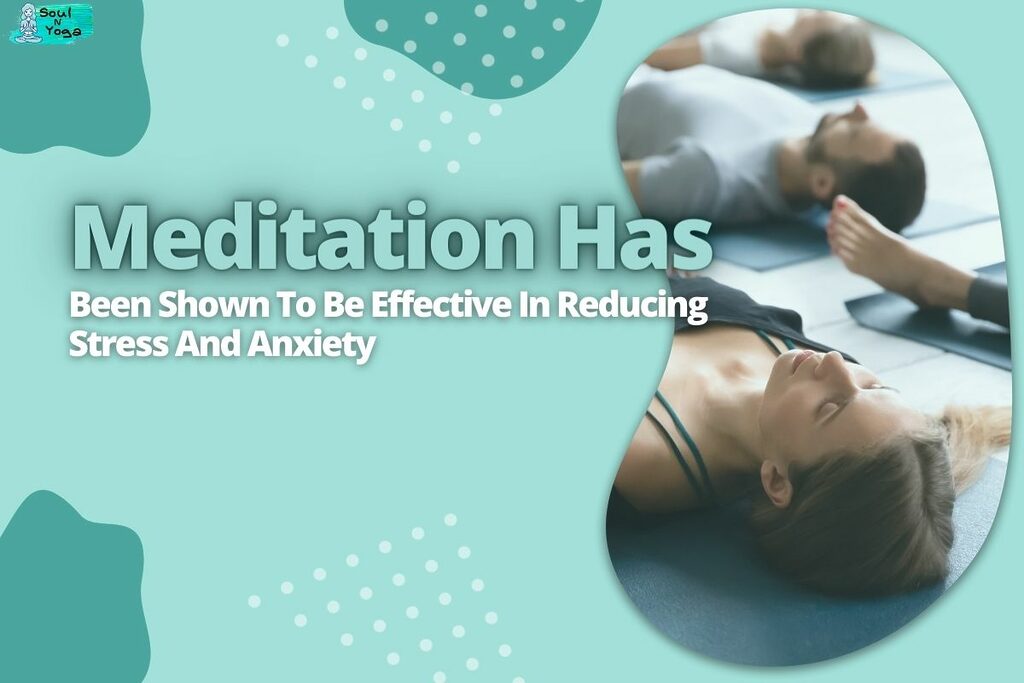
Meditation is effective in reducing stress and anxiety, which can help reduce the symptoms of sleep apnea. Stress is a major trigger for sleep apnea, so meditation could help prevent future episodes.
Meditation can improve overall sleep quality by lowering cortisol levels and increasing melatonin production, which will benefit your health in many ways.
Meditation Can Also Help Improve The Quality Of Sleep
If you are suffering from sleep apnea and stress and anxiety, then meditation can help. Meditation has been shown to positively affect both of these issues.
Meditation helps reduce stress by helping you relax, which reduces the likelihood that your body will overreact to certain stimuli (such as loud noises).
If this does happen, meditation will also help you calm down faster and recover more quickly from stressful situations.
In addition, because it teaches us how to control our reactions better, we can avoid getting into situations that would cause us undue stress in the future. This means fewer nights when we don’t get a good night’s rest.
Meditation May Also Help Increase The Amount Of Oxygen That Gets To The Brain
Meditation may help increase the amount of oxygen that gets to the brain, which can help reduce sleep apnea symptoms.
How? Meditation is thought to reduce stress and anxiety, common causes of snoring.
Stress can trigger your body to produce more adrenaline. This hormone causes muscles in your upper airway to tighten up (making it harder to breathe). You may hold your breath while you sleep due to anxiety, which exacerbates snoring.
Meditation also helps strengthen blood flow throughout your body—including through vessels in the nose and mouth—which increases oxygen supply.
As a bonus, meditation has been shown to improve sleep quality overall by reducing body temperature during sleep cycles; this means better circulation throughout our bodies (including those crucial parts for proper breathing)
Can Meditation Help With Sleep Apnea?
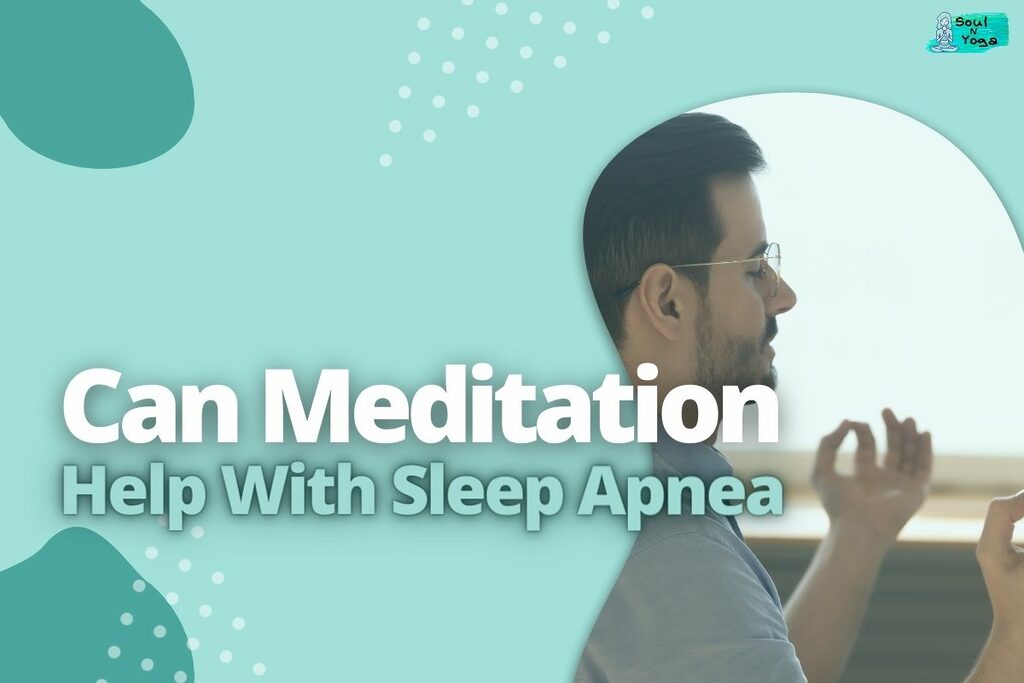
Meditation is a great practice for reducing anxiety and stress, common sleep apnea symptoms. It also improves the quality of your sleep by increasing the amount of oxygen that gets to your brain.
This helps you wake up refreshed each morning, with fewer symptoms or side effects related to sleep apnea.
Some people say meditation can cause them to stop breathing while asleep because they’re so relaxed that their body doesn’t know how much oxygen they need anymore.
However, this isn’t true—your body will automatically start breathing again when it needs more oxygen.
It’s even possible for meditators who have never had any problems with their breathing during sleep before (such as those who already practice yoga regularly) to breathe through their nose more deeply while sleeping than they do normally because of how much more relaxed they feel after meditating every day.
How Can You Get Started With Meditation For Sleep Apnea?
So, you’ve decided to give meditation a try. But how do you get started? I recommend finding a group or class that teaches meditation for sleep apnea.
You can also start by reading books on the subject and listening to podcasts. You must find a technique that works for your lifestyle and personality to be more likely to stick with it in the long run.
Some people find guided meditations easier than others; some like yoga, while others prefer sitting still with their eyes closed.
There are many different ways to go about this practice. Still, once you find something that works for you, meditation’s benefits will be worth it.
Where Can You Find More Information About Meditation And Sleep Apnea?
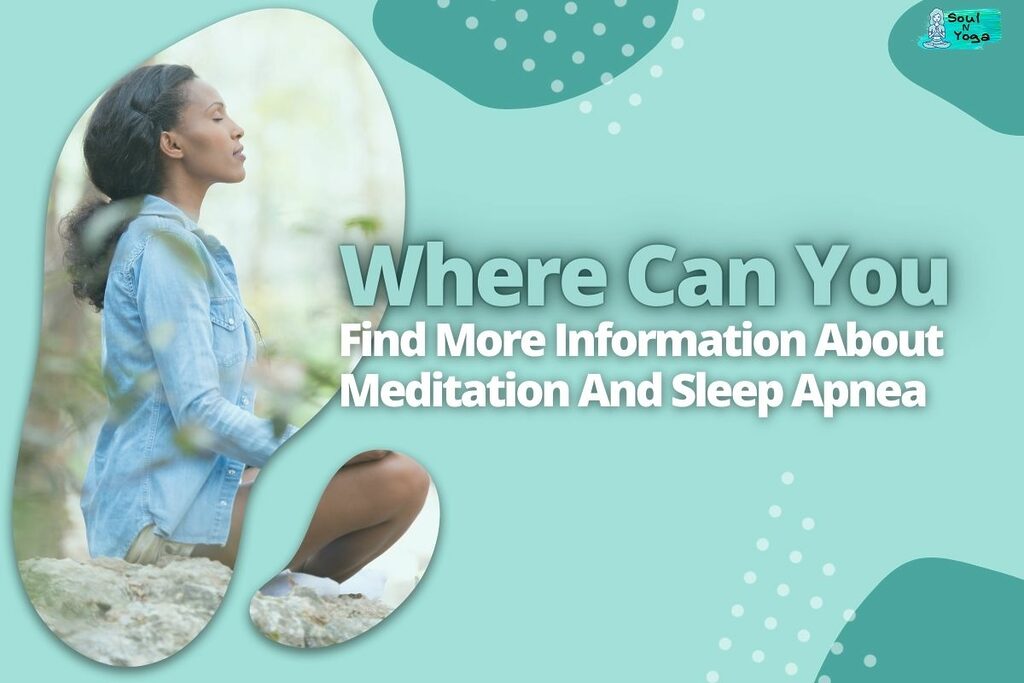
You can find much information about meditation for sleep apnea on the internet. Here are some useful resources:
- Articles on this topic
- Your doctor’s opinion on it
- The opinion of a sleep specialist in your area (if you have one)
- If you’re feeling adventurous, try talking to a meditation expert
Conclusion
In conclusion, I think it is safe to say that meditation can help with sleep apnea. The key here is that the person who suffers from sleep apnea needs to learn how to breathe properly before they begin using meditation as a treatment for their symptoms.
Meditation will not fix this problem on its own; it is just one more tool in your arsenal against this condition.
Meditation is an effective way to help ease the symptoms of sleep apnea. It can help improve sleep quality and reduce stress levels.
If you’re looking for a natural way to help ease your sleep apnea symptoms, consider trying meditation.
Make sure it’s appropriate for you by consulting your doctor first. And be sure to check our website for more tips on managing sleep apnea.
Frequently Asked Questions
How often should I practice mindfulness or meditation to achieve optimal results?
There is no one-size-fits-all answer to this question, as the best way to meditate depends on your practice and goals. However, you can expect relaxation benefits from meditation for approximately 15 minutes daily.
Should I seek professional help if my sleep apnea is not improving with regular self-care measures?
Suppose sleep apnea is causing significant problems such as snoring, fatigue or daytime drowsiness. It could be wise to seek professional assistance in that situation. However, suppose your sleep apnea is milder, or you’re only experiencing occasional symptoms. In that case, meditation may still be a good supplemental treatment for you. Speak to your doctor to learn about the best way to proceed.
Does meditation need to be done every day to be effective against Sleep Apnea?
There is no need to meditate every day to improve sleep apnea symptoms. However, it’s important to make regular practice a part of your treatment plan if you want the best results.
Can other relaxation techniques besides meditation help with Sleep Apnea?
Yes, relaxation techniques such as yoga can also help improve sleep apnea symptoms. However, meditation is unique in that it helps you focus on your breath, which has been shown to positively impact sleep quality.
My name is Mugen Seki, and I’m a painter and yoga enthusiast who is passionate about bringing together art and exercise in ways that help people connect with their inner selves. When I’m not painting, I’m practicing yoga. And when I’m not doing either of those things, I’m usually thinking about them.
- How to Hold a Yoga Pose for 4 to 5 Minutes – Practical Tips
- A Guide to Finding the Perfect Yoga Mat for Carpet Floors
- Kneeling Yoga Poses: Hands, Knees, and Position Reference Guide
- Is Meditation Bad For Christians (The Surprising Answer)
- Is Meditation Bad For You (Don’t Believe Everything)
- Will I Get Better At Meditation (Understand The Secret)
